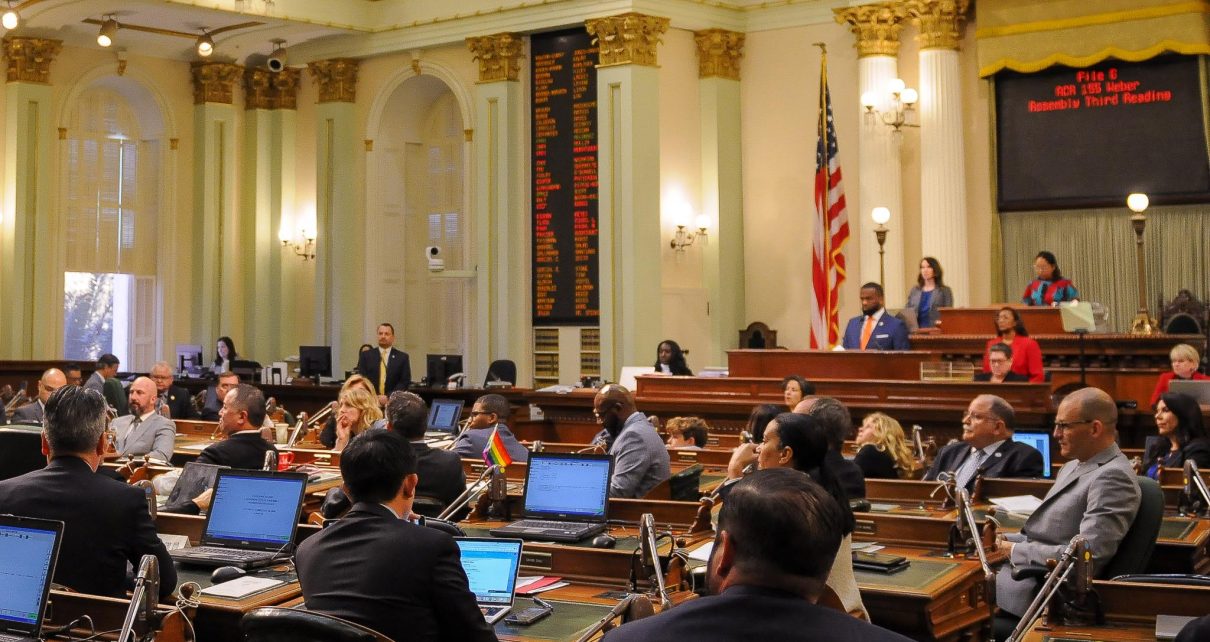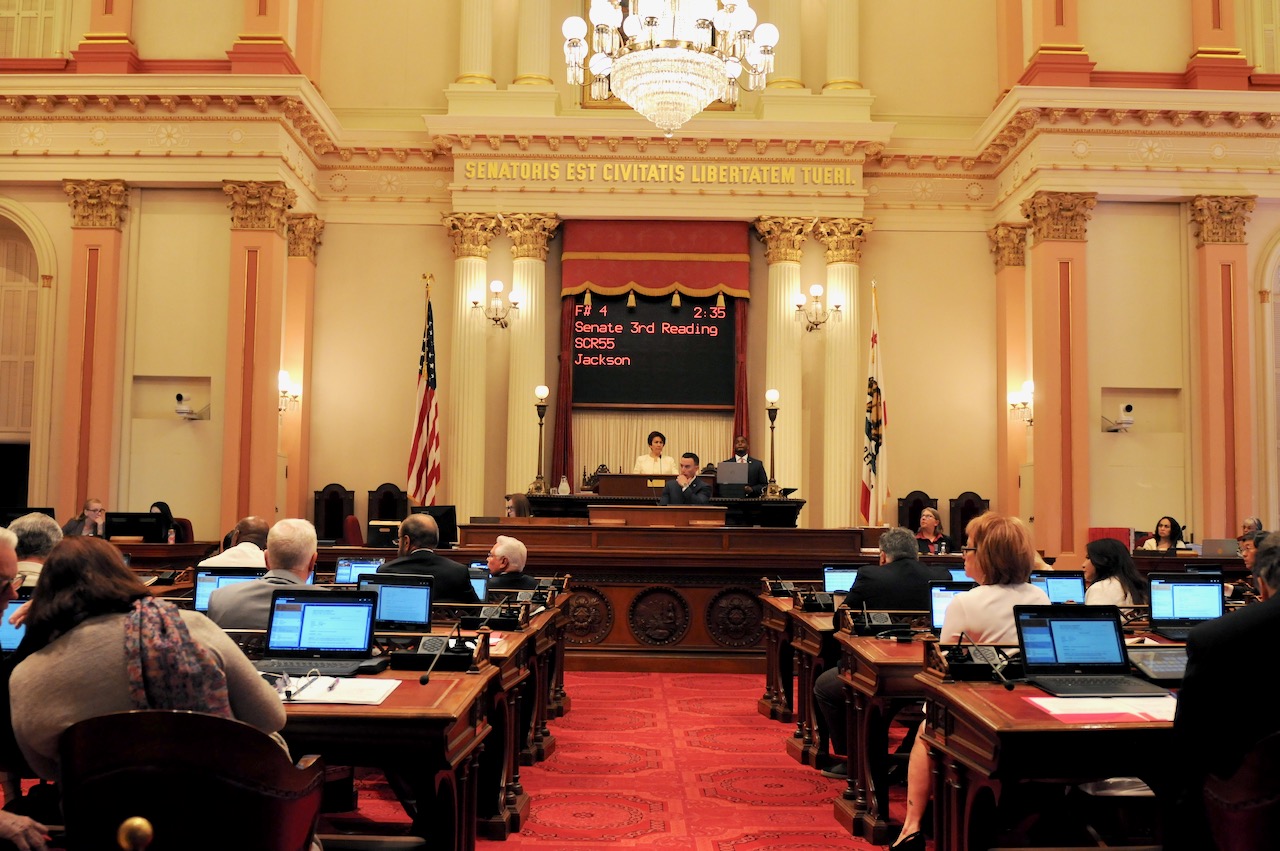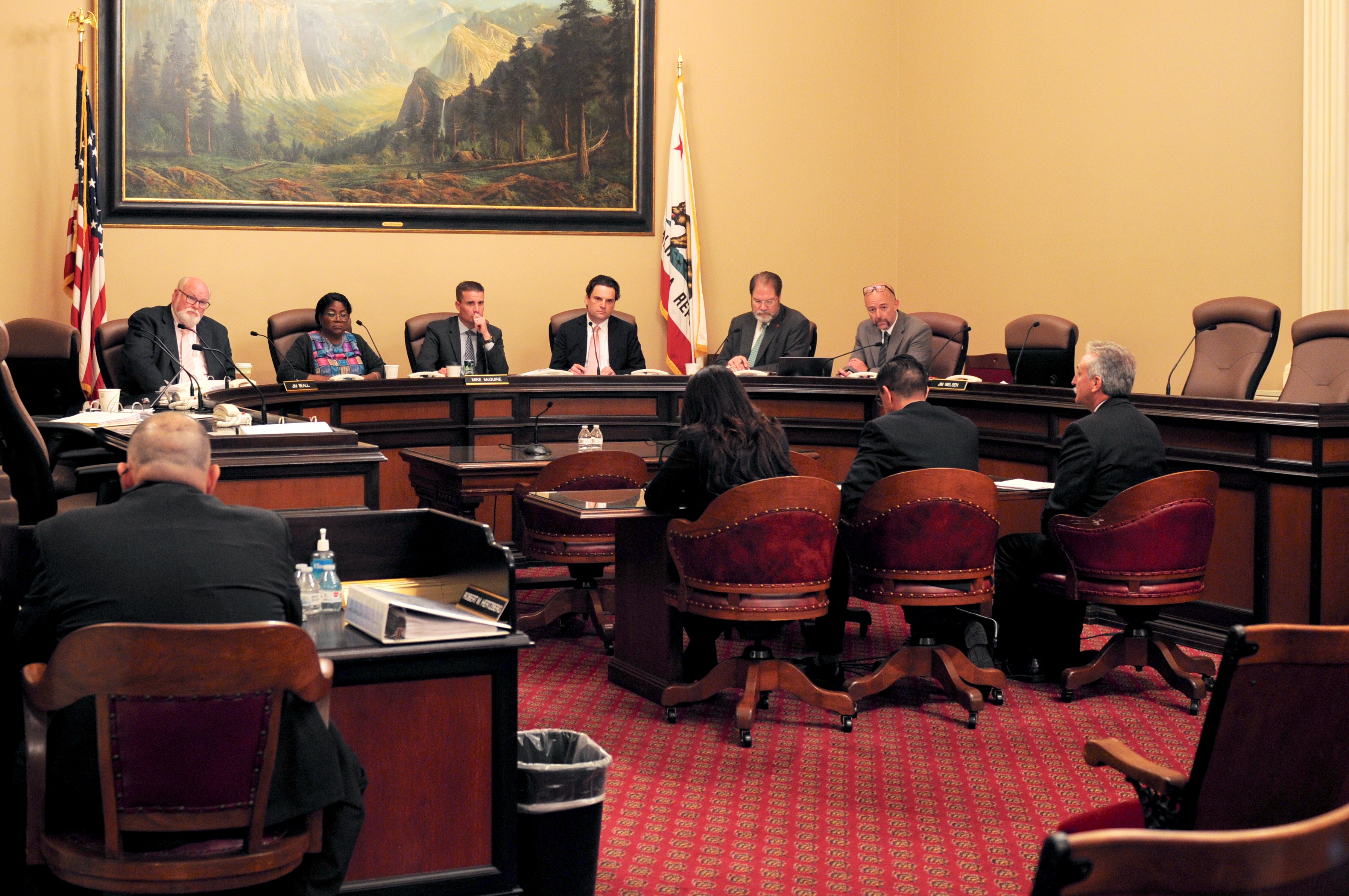
California State Assembly. (Photo: Kevin Sanders for California Globe)
Frequently Asked Questions About California Legislative Committee Hearings
Do committees have to provide public notice when setting a bill for a hearing?
By Chris Micheli, February 2, 2024 3:05 am
Do super majority vote bills have to pass out of committee by a super majority vote? All bills require only a majority vote in committee for passage, regardless of whether there is a higher vote threshold specified by the Legislative Counsel. The higher vote requirement only applies on the floor of the Senate or Assembly.
Can a committee pass a bill based upon a majority of the committee members present? The majority vote requirement applies to the full membership of the committee. In other words, if there are nine members on a committee, five votes are required to pass a bill, even if only seven members are voting on the bill due to abstentions or absences.
Do committees have to provide public notice when setting a bill for a hearing? Absent a rule waiver, pursuant to Joint Rule 62(a), any bill to be heard in its first committee must be noticed in the Daily File for at least four days, including weekend days.
Is the Daily File notice for all committee hearings on bills the same? As set forth in Joint Rule 62(a), each bill in the first committee of reference must be noticed in the Daily File for four days prior to the committee hearing. At a second or subsequent committee of reference, a notice of only two days in the Daily File is required, absent a rule waiver.
Do the Joint Rules related to committee deadlines apply to all committees? This is the general rule, but the Rules Committees are exempt from these deadlines pursuant to Joint Rule 61(f).
Can any committee establish a suspense file for bills? In the Assembly, only the Appropriations Committee and Revenue and Taxation Committee may establish a suspense file pursuant to Assembly Rule 58.2(b).
Can a chair preside at a committee hearing on a bill for which he or she is the author? Under Assembly Rule 60, a chair cannot preside where he or she is the sole or lead author of a bill, except this rule does not apply to the Budget Committee Chair when the hearing is on the Budget Bill of which he or she is the author.
Are the Appropriations Committees in the Assembly and Senate conducted in the same manner? Regarding their suspense files, the Assembly votes to pass a bill or announces which bills are held on suspense, while the Senate only votes on bills it will pass off of the suspense file.
What types of hearings can a committee hold? Committees of the California Legislature can conduct several types of hearings, including bill hearings, investigative or oversight hearings, and informational hearings.
What is the purpose of a committee’s informational hearing? They are used to gather information about the subject matter of the hearing, usually in preparation for consideration of legislation in the future. The chair, members or staff of the committee generally come up with the subject matter of the hearing.
What do the Joint Rules provide regarding informational hearings? Joint Rule 60 deals with committee hearings and Subdivision (b) provides “A committee may hear the subject matter of a bill or convene for an informational hearing during a period of recess.”
What is the purpose of a committee’s oversight or investigative hearing? These hearings are generally held because there is concern about how a program is being administered or about a law is being interpreted or enforced. Some distinguish oversight from investigative hearings wherein there may be an allegation of wrongdoing by a public official in an investigative hearing.
What do the Assembly Rules provide regarding oversight or investigating hearings? Assembly Rule 11.5 provides: “(a) The standing committees of the Assembly … are hereby constituted Assembly investigating committees and are authorized and directed to conduct oversight hearings and to ascertain, study, and analyze all facts relating to any subjects or matters which the Committee on Rules shall assign to them upon request of the Assembly or upon its own initiative.”
What do the Senate Rules provide regarding oversight or investigating hearings? Senate Rule 16 provides for general powers of standing committees and states: “Each standing committee of the Senate to which a proposed law or bill is assigned has full power and authority during the session of the Legislature, or any recess thereof, to make an investigation and study concerning any proposed law or bill as the committee shall determine necessary to enable it to properly act thereon.”
What do the Joint Rules provide regarding oversight or investigating hearings? Joint Rule 36 provides for investigating committees and specifies that, “In order to expedite the work of the Legislature, either house, or both houses jointly, may by resolution or statute provide for the appointment of committees to ascertain facts and to make recommendations as to any subject within the scope of legislative regulation or control.”
What is the purpose of a committee’s confirmation hearing? They are generally only held by the State Senate, except for those rare instances when both houses of the Legislature consider a gubernatorial appointment of a constitutional officer. Confirmation hearings are conducted by the Senate Rules Committee to provide “advice and consent” on appointments made.
- Should Interpretive Guidance Be Included in California Legislation? - April 28, 2024
- Legislative Intent Does Not Equate to a Mandate - April 27, 2024
- Frequently Asked Questions about State Agency Ethics Training - April 26, 2024




